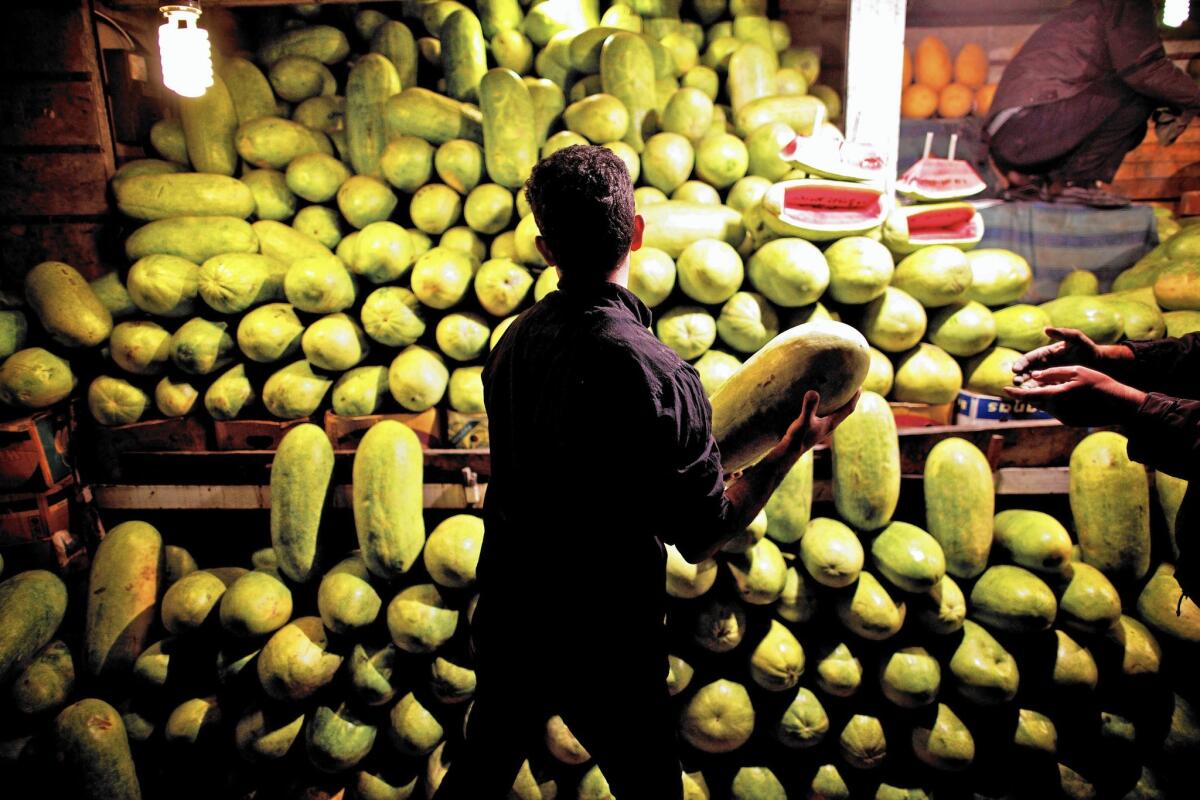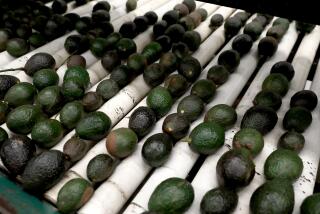Iran’s bitter rivalries with Persian Gulf nations taint its watermelons

The battle for dominance of the Middle East between Saudi Arabia and Iran has expanded to a new battleground: watermelons.
Last week, customers in Qatar, the United Arab Emirates and Iran’s archrival, Saudi Arabia, suspected fruit most foul after spotting holes that “appeared to be made with a drill” in shipments of watermelon coming from Iran, according to alarmed posts on Twitter.
A video soon surfaced of a man in a supermarket pointing out the holes in a neatly organized pile of watermelons.
“The holes appear to have been closed up with what seems like mud,” he says as his smartphone camera pans across the watermelon stand.
Other concerned people posted pictures under the hashtag #Boycott_Iranian_Goods, warning fellow watermelon lovers that Iran was injecting poison, carcinogens or lethal viruses into their favorite fruit.
“I wish I knew when the ministers of commerce will realize Iran is the biggest enemy of the [Persian] Gulf countries,” Twitter user Ali Shahri wrote. The nation “that exports arms and trouble to our countries, is it trustworthy for us to import our watermelons from it?”
Officials and politicians also took a slice of the action.
Kuwaiti lawmaker Hamdan Aazimi saw the purportedly tainted fruit as a response to Saudi Arabia’s bombing campaign against Iran-allied Houthi rebels in Yemen, the Kuwaiti newspaper Al Jarida reported.
For Aazimi, Iran’s revenge came in the form of foodstuffs “full of poisonous chemical materials.”
He urged gulf countries to boycott Iranian goods and cut off all relations with the Islamic Republic.
“What are we waiting for? The danger is clear and Iran is behind every tragedy in the area,” he said.
In the nearby United Arab Emirates, Gen. Dhahi Khalfan, Dubai’s deputy police chief, tweeted that “Iranian fruit exported to the gulf is a health disaster.”
The uproar prompted authorities throughout the region to subject watermelon shipments to further testing. The Saudi Ministry of Commerce and Industry, however, said there were no Iranian watermelons in the sun-scorched kingdom’s markets because local producers met demand for the fruit, according to the newspaper Al Hayat newspaper. The Saudi complaints on social media were apparently referring to melons being sold elsewhere in the region.
Meanwhile, sales of Iranian watermelons plummeted, to the consternation of irate Iranian exporters, who attributed the holes to pests that burrow into the rind to lay eggs.
“We export 1,500 tons of watermelons to Arab countries from the city of Mashhad,” said Mohammad Jiroudi, a fruit and vegetable exporter contacted in Tehran by phone. “But our watermelons of course are vulnerable to pests due to the way they are packed and shipped.”
Ghasem Golbaf, chief editor of a monthly agricultural magazine in Iran, said the watermelons had been vilified “by politicized rumors.”
“Why on earth would Iranian private-sector merchants act against their own market?” he said. “They do not inject poisons into their products. They do not cut off their own legs.”
Yet the fear persists, despite the fact that health ministries in several gulf nations cleared Iranian watermelon imports, saying they contained no harmful substances.
The emirates sent back six shipments of Iranian watermelons in the last week, a move that was “most probably the result of a political game or a trade rivalry,” Hossein Izadi Najafabadi, deputy head of Iran’s Plant Protection and Quarantine Organization, told the official Press TV news service Wednesday.
Iran is exporting watermelons to Turkey, Turkmenistan, Georgia and Germany with no problems reported, he said.
“This is merely a propaganda campaign by the Arab countries, which we will address through legal channels,” Najafabadi said.
Special correspondents Mostaghim reported from Tehran and Bulos from Istanbul, Turkey.
More to Read
Start your day right
Sign up for Essential California for news, features and recommendations from the L.A. Times and beyond in your inbox six days a week.
You may occasionally receive promotional content from the Los Angeles Times.







